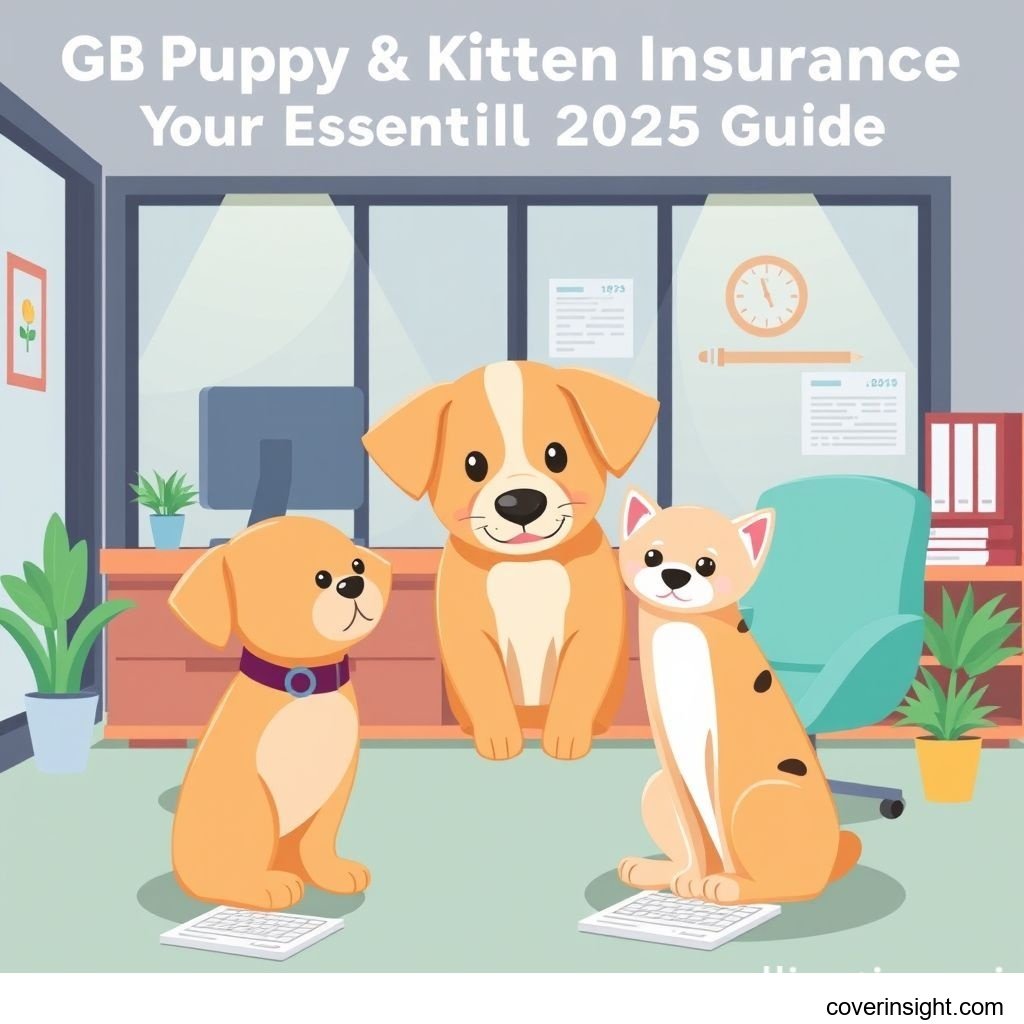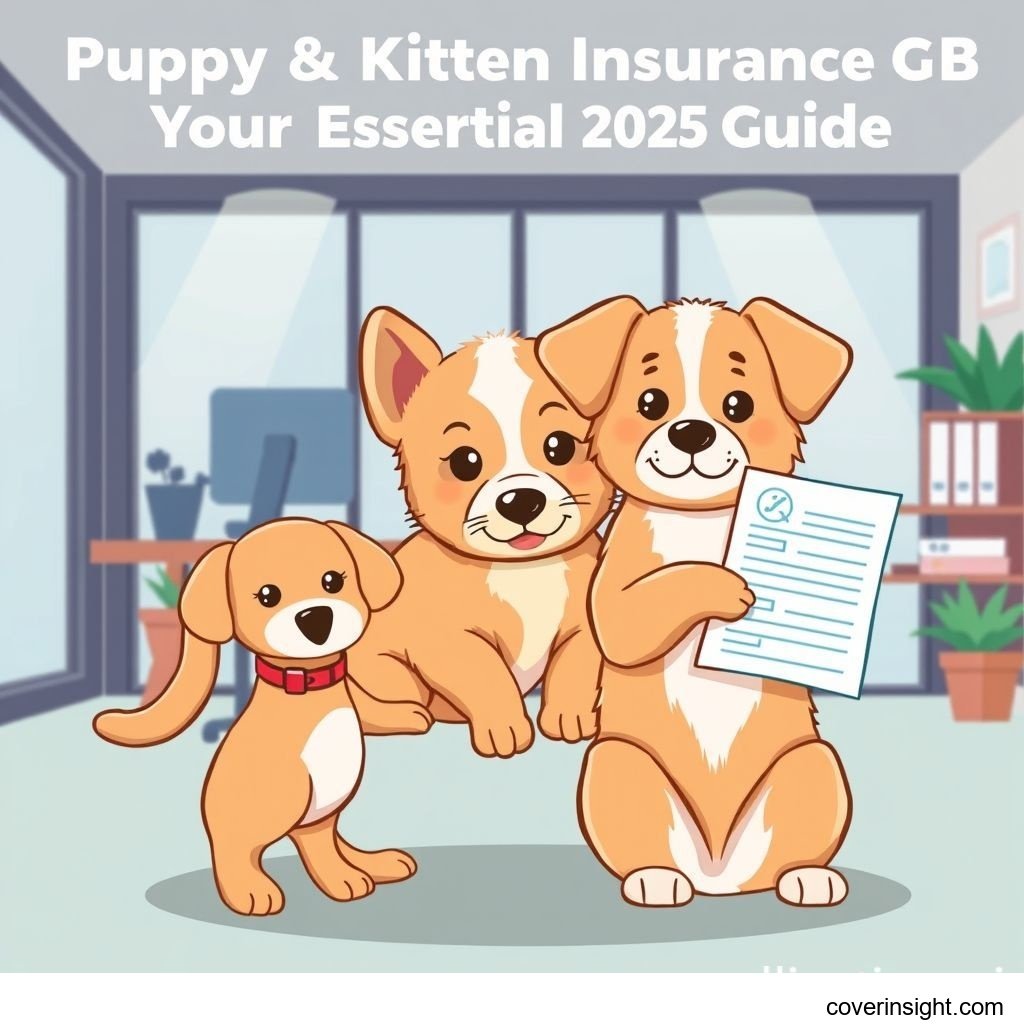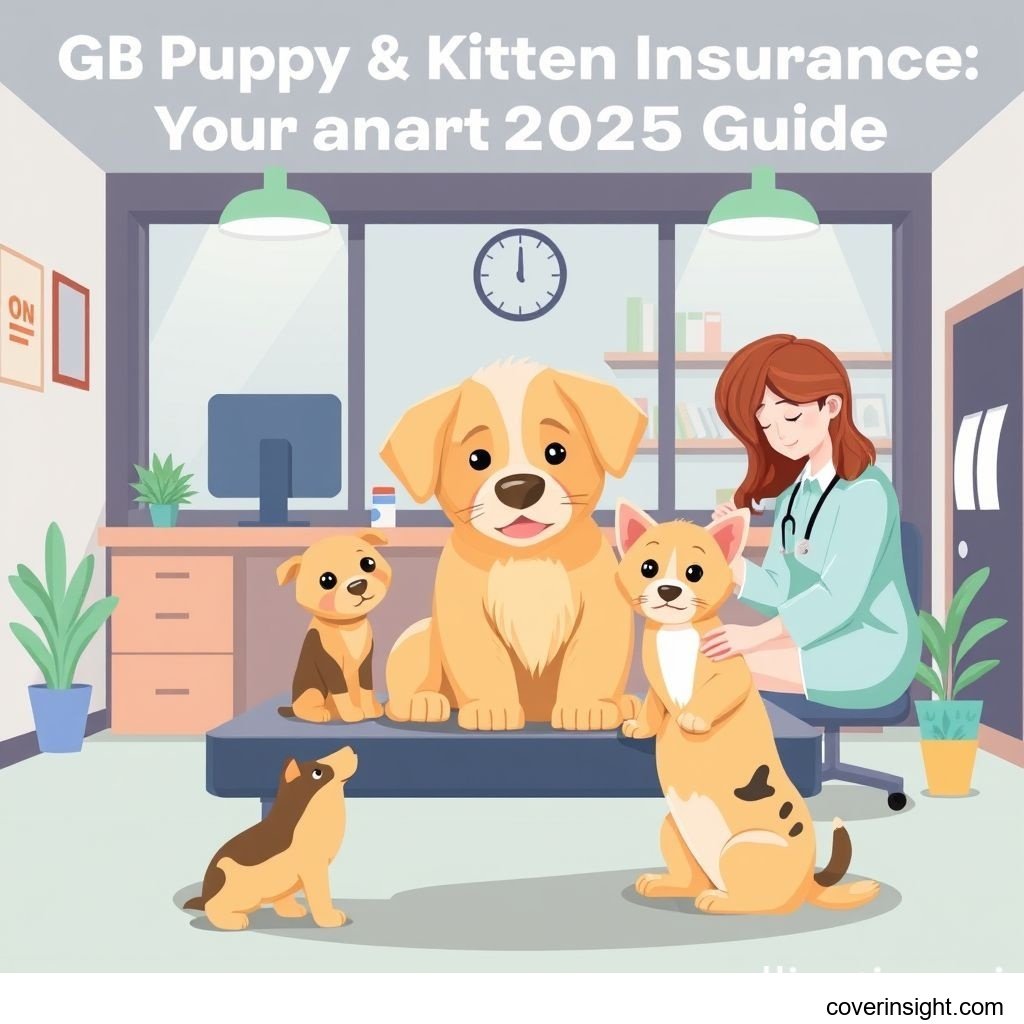GB Puppy & Kitten Insurance: Your Essential 2025 Guide
Introduction
Welcoming a new puppy or kitten into your Great British home in 2025 is an exciting time, filled with boundless joy and a fair share of chewed slippers. However, amidst the excitement, it’s crucial to consider a practical step that could save you a significant amount of heartache and money down the line: puppy and kitten insurance. In an era where veterinary costs are steadily climbing, understanding the ins and outs of pet insurance in GB is more important than ever. It's not just about covering unexpected accidents; it's about providing peace of mind and ensuring your furry family member receives the best possible care without breaking the bank.
Coverage Details
What’s Included
Generally, a good puppy or kitten insurance policy in GB aims to cover the unforeseen. The cornerstone of most policies is veterinary fees for illnesses and injuries. This can range from a sudden bout of gastroenteritis to a broken leg or a serious long-term condition like diabetes. Many policies also include third-party liability cover, which is especially vital for puppies, protecting you if your dog causes damage or injury to someone else or their property. Beyond the basics, you might find cover for loss or theft, helping with advertising and reward costs, or even contributing towards the purchase price of a new pet. Some comprehensive policies extend to complementary therapies like hydrotherapy or acupuncture, if recommended by a vet, and even overseas travel cover should you plan to take your pet abroad.
Common Exclusions
While robust, pet insurance isn't a blank cheque for all pet-related expenses. Understanding common exclusions is key to avoiding disappointment. Crucially, pre-existing conditions – any illness or injury your pet showed signs of before the policy started or during a waiting period – are almost universally excluded. This is a significant reason to get puppy or kitten insurance as early as possible. Routine preventative care, such as vaccinations, neutering/spaying, worming, flea treatments, and regular check-ups, are generally not covered, as these are considered part of responsible pet ownership. Similarly, routine dental hygiene (e.g., scale and polish) is often excluded unless it's a direct result of an accident. Certain behavioural issues or costs associated with breeding might also be excluded. It's always best to read the policy wording with a fine-tooth comb to ensure you're not caught out.
Cost Analysis
Price Factors
The cost of puppy and kitten insurance in GB isn't a fixed sum; it's a bit of a mixed bag, influenced by several factors. Firstly, your pet's breed plays a significant role. Purebreds, especially those prone to inherited conditions (e.g., Bulldogs with breathing issues or Labradors with hip dysplasia), often command higher premiums. The age of your pet is also critical; premiums typically increase as pets get older due to higher health risks. Your postcode matters too – veterinary costs can vary significantly across GB, with urban areas often being more expensive. The type of coverage you choose, whether it's an accident-only, per-condition, or comprehensive lifetime policy, will naturally dictate the price. Furthermore, the excess amount (the fixed sum you pay towards a claim) and the vet fee limits you opt for will directly impact your premium. Finally, your pet’s individual health history will be factored in.
Saving Tips
While cost is a consideration, compromising on crucial cover isn’t wise. However, there are smart ways to save a few quid. Firstly, shop around using comparison websites and direct quotes; prices can vary wildly between insurers for similar levels of cover. Don't be afraid to increase your voluntary excess if you're comfortable paying a bit more upfront should you need to claim – this can lower your monthly premium. If you have multiple pets, enquire about multi-pet discounts; many insurers offer them. Proactive preventative care – think regular vet check-ups, a healthy diet, and plenty of exercise – can keep your pet healthier, reducing the likelihood of claims and potentially impacting future premiums. And finally, ensure your puppy or kitten is microchipped; it’s not only a legal requirement for dogs but also often a condition for insurance cover. As someone living in GB, I've seen firsthand how a little bit of legwork at the start can save you a pretty penny in the long run.
FAQs
How much does puppy/kitten insurance cost?
The cost is highly variable, but you can expect to pay anywhere from £10 to £60+ per month for comprehensive cover in GB, depending on the factors mentioned above. Accident-only policies can be cheaper, starting from around £5-£10.
What affects premiums?
Premiums are primarily affected by your pet's breed, age, location, the type and level of cover chosen, the excess amount, and your pet's health history. For more on how insurers manage risk and pricing, you might find information from the Financial Conduct Authority insightful.
Is it mandatory?
No, pet insurance is not legally mandatory in GB, unlike car insurance. However, it's highly recommended to protect against unexpected financial burdens. According to a recent survey by a prominent UK animal welfare charity, such as the PDSA, pet owners face average veterinary bills for common conditions like ear infections or skin issues running into hundreds of pounds, and emergency care can easily reach thousands. Take, for instance, the case of Buster, a Spaniel puppy from Leeds, who swallowed a foreign object. The emergency surgery and aftercare amounted to over £4,500. His owners, Sarah and Tom, were immensely relieved their comprehensive puppy insurance covered the majority of the costs, preventing a significant financial shock.
How to choose?
Compare policies not just on price, but on the type of cover (e.g., lifetime vs. accident-only), the annual vet fee limit, lifetime claim limits, exclusions, and customer reviews. For a broader perspective on the insurance market, you can explore Insurance Resources Global or delve into specific GB options via GB Insurance Home. Don't forget to check the excess and co-payment clauses.
Consequences of no coverage?
Without pet insurance, you are solely responsible for all veterinary bills. This can lead to difficult decisions regarding your pet's care if you cannot afford expensive treatments, potentially forcing heartbreaking choices or leading to significant financial strain. The Association of British Insurers (ABI) consistently highlights the importance of pet insurance in managing these unforeseen costs for UK households.
Author Insight & Experience
Based on my experience navigating the world of pet ownership in GB, getting pet insurance for a new puppy or kitten isn't just an option; it's a non-negotiable safeguard. I've heard countless tales, and indeed, have had a few close calls myself, where unexpected illnesses or accidents hit like a bolt from the blue. The sheer relief of knowing that you can afford the best treatment, without having to make a choice between your pet's health and your savings, is utterly priceless. It’s about being able to say yes to diagnostics, to specialist referrals, and to the best possible care, rather than grappling with the devastating thought of "what if I can't afford it?". It truly is an investment in your peace of mind and your new companion's well-being.








Comments